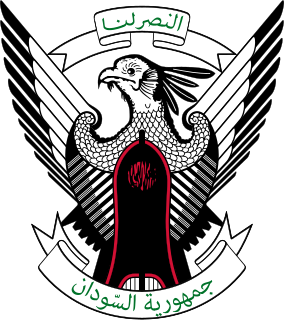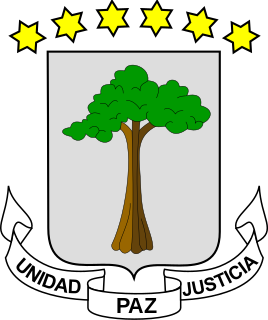
Elections in Rwanda take place within the framework of a multi-party democracy and a presidential system. The President and majority of members of the Chamber of Deputies are directly elected, whilst the Senate is indirectly elected and partly appointed.

The chiefdoms of Sierra Leone are the third-level units of administration in Sierra Leone. There are 190 chiefdoms in Sierra Leone, as of 2017. Previously, there were 149.

Parliamentary elections were held in Italian Somaliland in February 1956. The result was a victory for the Somali Youth League (SYL), which won 43 of the 60 elected seats in the Territorial Council.

General Council elections were held in French Ivory Coast in December 1946 and 5 January 1947. The Democratic Party of Côte d'Ivoire – African Democratic Rally won all 15 seats in the Second College in Ivory Coast, and 24 of the 30 Second College seats overall.

Indirect parliamentary elections were held in Burundi in 1957.
Elections to the French National Assembly were held in Chad and Ubangi-Shari on 17 June 1951. The territories elected four seats to the Assembly via two electoral colleges; the first college spanned both territories and elected one seat, whilst Chad elected two seats via the second college and Ubangi-Shari one. René Malbrant was re-elected from the first college, and Barthélémy Boganda from the second in Ubangi-Shari. In the second college in Chad, both seats were won by the Chadian Democratic Union.
Elections to the French National Assembly were held in Chad and Ubangi-Shari on 2 January 1956. The territories elected four seats to the Assembly via two electoral colleges; the first college spanned both territories and elected one seat, whilst Chad elected two seats via the second college and Ubangi-Shari one. René Malbrant was re-elected from the first college and Barthélémy Boganda from the second college in Ubangi-Shari. In the second college in Chad the Chadian Union and Chadian Social Action won one seat each, taken by Gabriel Lisette and Arabi el Goni respectively.

General elections were held in Nigeria between October and December 1954. The Northern People's Congress emerged as the largest party, winning 84 of the 184 seats. However, the NPC only won seats in the Northern Region. Although the National Council of Nigeria and the Cameroons won the most seats in the Eastern and Western Regions, Action Group was the only party to win seats in all three regions.

Indirect parliamentary elections were held in Rwanda in 1954.

Indirect parliamentary elections were held in Rwanda in 1957.

Elections to the French National Assembly were held in Senegal on 3 April 1871 as part of the wider French elections Lafon de Fongaufier was elected.

General elections were held in Sierra Leone Colony and Protectorate for the first time on 28 October 1924. The National Congress of British West Africa won all three seats.

Parliamentary elections were held in British Somaliland on 18 March 1959.

Local elections were held in Italian Somaliland in May 1954 to elect members of 35 municipalities. The Somali Youth League won just over half of the 281 seats up for election.

Parliamentary elections were held in Sudan on 15 November 1948.

Elections to the French National Assembly were held in Tunisia on 21 October 1945 as part of the wider French elections. Two members were elected from the territory, with both seats won by the French Rally, which was linked with the Rally of Left Republicans. The seats were taken by Louis Brunet and Antoine Colonna.

Elections to the French National Assembly were held in Tunisia on 2 June 1946 as part of the wider French elections. Two members were elected from the territory, with both seats won by the French Rally, which was linked with the Rally of Left Republicans. The seats were taken by Louis Brunet and Antoine Colonna, both of whom had previously been elected in the 1945 elections.

A by-election for the French National Assembly was held in Senegal in 1879. Although Maréchal received over 50% of the vote in the first round, he did not reach the quorum of 25% of registered voters. Alfred Gasconi, the Republican candidate, was elected in the second round of voting.

Indirect provincial elections were held in Spanish Guinea in 1960. Local council elections were held on 5 June, with some elected by corporations on 12 June. Two Provincial Assemblies were subsequently elected on 28 August.

A by-election to the Spanish Cortes Españolas was held in Spanish Guinea in 1960.













